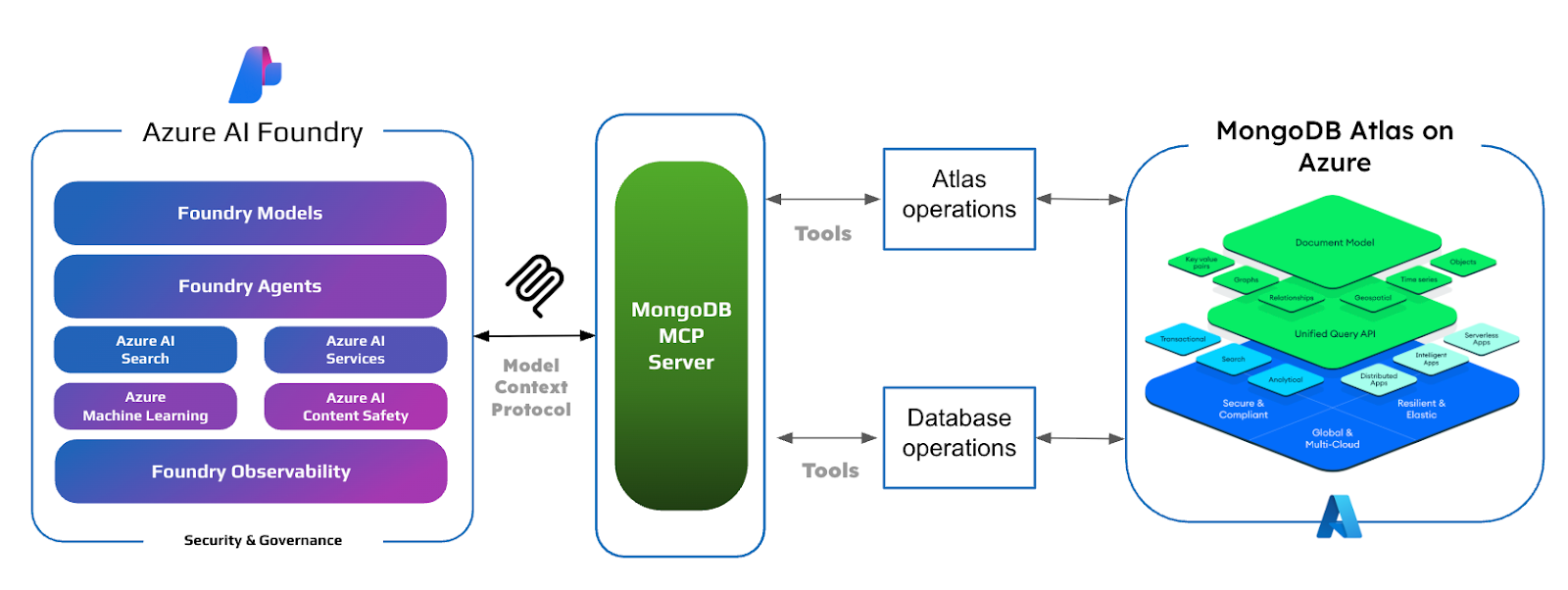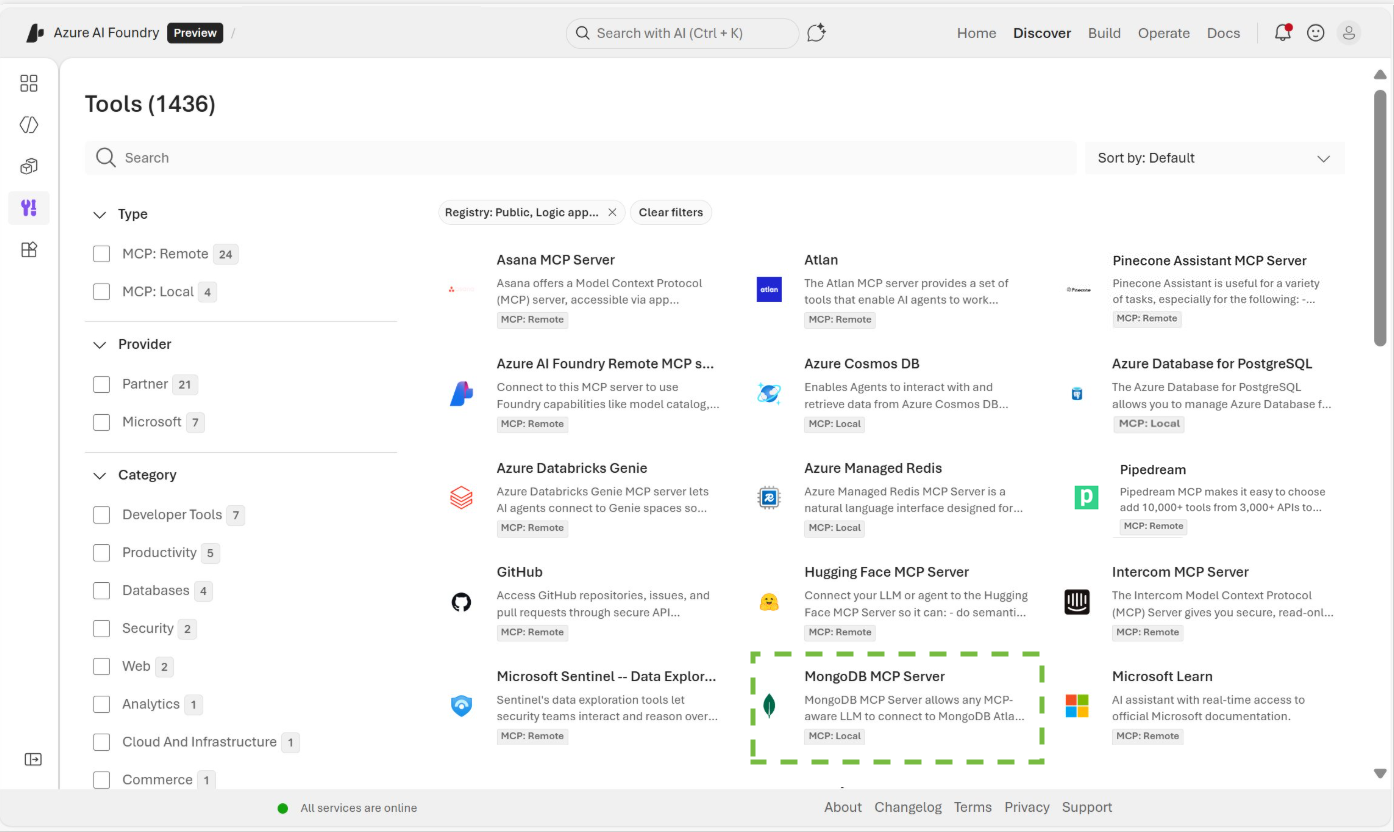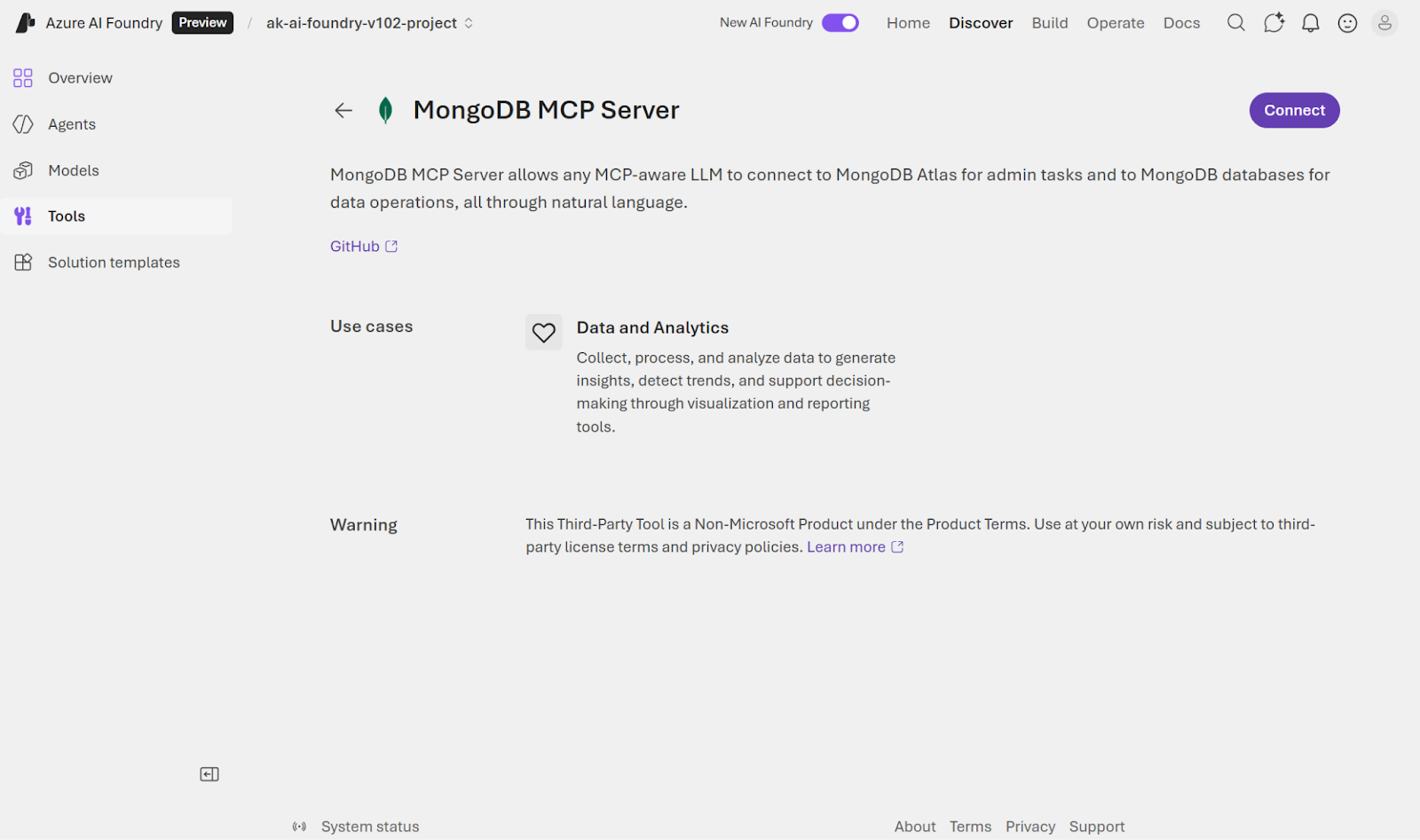Generative AI is rapidly evolving from experimenting with models to relying on intelligent, autonomous multi-agent workflows that can reason, act, and adapt in real time. Together, Microsoft and MongoDB are defining the future of AI by providing companies everywhere a robust, secure, scalable foundation for building innovative, next-generation AI agents.
Microsoft Azure Foundry provides a unified, enterprise-grade platform to build, deploy, and govern AI applications and agents, while MongoDB Atlas delivers the flexible, secure, and scalable data foundation that gives those agents real-time memory, context, and intelligence across the Azure ecosystem.
Today, we’re pleased to announce that Microsoft and MongoDB are taking that collaboration to the next level, bringing the MongoDB MCP Server into the tools catalog in Microsoft Foundry. This integration bridges Microsoft Foundry’s Agent Service with MongoDB’s real-time data capabilities—empowering developers to build context-aware agents that can both retrieve knowledge and perform actions using MongoDB Atlas.
MongoDB Atlas meets Microsoft Foundry
Originally introduced by Anthropic, the Model Context Protocol (MCP) has become the de facto standard for communication between AI agents and external data systems. In essence, MCP servers bridge AI agents and live business data.
Microsoft Foundry’s MCP support extends this power to its Agent Service, enabling seamless integrations with diverse systems—whether hosted locally in Azure tenant or remotely in the provider’s cloud. Adding the MongoDB MCP Server to the Tools Catalog allows for easy access to the tools supported by the MongoDB MCP Server, broadly classified as Atlas tools and Database tools. For all MongoDB MCP Server-supported tools, check out GitHub.
This integration allows Microsoft customers to give their AI systems secure, contextual, and real-time access to enterprise data in MongoDB Atlas—all within a governed, scalable architecture. It also allows the agents to take actions/perform operations like inserting or updating documents, managing clusters, or creating users.

The MongoDB MCP Server translates agentic requests coming from Microsoft Foundry into structured, policy-compliant queries to MongoDB Atlas, returning context-rich results that agents can use to reason, act, and learn safely. Beyond enabling retrieval for retrieval-augmented generation (RAG) scenarios, it also enables other database operations such as update, insert, delete, create indexes, etc. It also supports Atlas operations such as creating projects, clusters, and database users. Because the MCP Server connects through MongoDB’s native APIs and security model, enterprises can control exactly what data an agent can access.
How to deploy the MongoDB MCP Server in Microsoft Foundry
Within the Microsoft Foundry interface:
1. Select MongoDB MCP Server from the Tools Catalog.

2. Click Connect, which provides deployment instructions, and click GitHub for a Bicep template for hosting the server on Azure Container Apps (ACA).

3. Use the ACA URL and your preferred authentication method to connect to the MCP Server.
4. Configure which tools the agent can access, and define clear usage instructions for each agent on how and when to use the tools.
This seamless integration extends across both the Microsoft Foundry UX, SDK and API, ensuring flexibility for developers building advanced agentic workflows.
With the MongoDB MCP Server, Microsoft Foundry agents can move beyond static knowledge bases or stale vector stores. They can now interact with fresh, operational data—grounding their insights, actions, and recommendations in the latest enterprise context. Agents can now autonomously do data exploration, database management, and assist in code generation—all while maintaining compliance and security.
Enabling enterprise AI
The MongoDB MCP Server-Microsoft Foundry integration is a major step forward in enterprise AI enablement. It delivers a secure, scalable, and governed pathway from experimentation to production—turning enterprise data into the active backbone of intelligent decision-making and workflow automation.
This collaboration paves the way for trustworthy, context-aware AI systems that align seamlessly with real-world business processes, permissions, and policies—accelerating the journey from AI prototypes to production-ready agents.
Next Steps
Read more from Microsoft blog announcing the integration. Get started with Azure native MongoDB Atlas in the Azure marketplace.